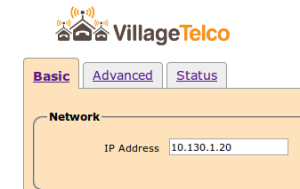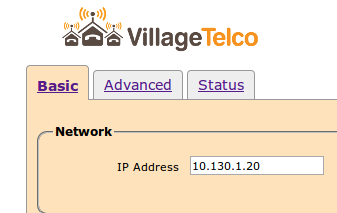 It’s been a while coming but we’re happy to announce the general release of the SECN 2.0 firmware. This firmware is available for the Mesh Potato 2.0 and a range of TP-Link and Ubiquiti devices. We posted details in the RC1 release of the software but here is a comprehensive list of features:
It’s been a while coming but we’re happy to announce the general release of the SECN 2.0 firmware. This firmware is available for the Mesh Potato 2.0 and a range of TP-Link and Ubiquiti devices. We posted details in the RC1 release of the software but here is a comprehensive list of features:
- OpenWrt Attitude Adjustment: SECN 2.0 is based on the final release of OpenWrt Attitude Adjustment. We will continue to tie SECN releases as closely as possible to OpenWrt releases in order to maximise device compatibility.
- Batman-adv: The SECN firmware now runs the 2013.4 release of batman-adv which includes essential features such as Bridge Loop Avoidance.
- WAN Support: SECN 2.0 now offers WAN features that allow the device to configure an upstream connection via WiFi, USB Modem or Mesh
- Configurable Ethernet: Ethernet ports can be individually configured for WAN or LAN function.
- Timezone setting
- WiFi Country Code setting
- Web page for Firmware Upgrade
The SECN 2.0 firmware can be downloaded at http://download.villagetelco.org/firmware/secn/stable/ Please check all downloaded files against their MD5 sums prior to flashing your device. If you have any questions about upgrading your firmware, please don’t hesitate to ask questions in the development community.
Also available very soon will be an SECN 2.0 firmware for the MP1 which will allow full compatibility among first generation Mesh Potatoes and all current generation devices including the MP2 Basic, MP2 Phone, and TP-Link/Ubiquiti devices.
This final release of the 2.0 SECN firmware wouldn’t have been possible without countless hours of tweaking, testing and innovation by Terry Gillett. Thanks too to Keith Williamson and Elektra for invaluable support.
Upcoming Firmware
SECN 2.1
SECN 2.x
- a softphone directory web page which will allow for local registration and management of SIP-enabled devices to a master Mesh Potato allowing for small-scale local directory management and services for VoIP
- local instant messaging support via XMPP through the integration of the Prosody jabber server
- integration of a Twitter Bootstrap based UI which will make for faster and more intuitive configuration interface.
